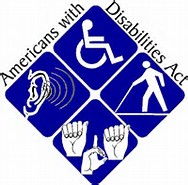In Violation of the Americans with Disabilities Act

The fact that no major nationwide disability rights group supports physician-assisted suicide should be a clear sign that there are significant problems associated with the legislation that’s been filed in Maryland. In many cases, people with disabilities have faced systemic discrimination in the healthcare system, often with healthcare professionals and other caretakers who do not believe their life is valuable.
This systemic discrimination raises concerns for people with disabilities when it comes to the legalization of physician-assisted suicide (PAS). It is a concern raised by disability advocates and organizations around the country. Disability groups’ and advocates make the point that most people with terminal illness at one point will become disabled. One of their biggest concerns is that proponents of the legislation are characterizing a disability as a loss of dignity.
In Maryland, this concern has been raised year after year surrounding the filing of a PAS bill with no protections in place for people with disabilities. This session the bill once again does nothing to protect our most vulnerable residents who are at serious risk of coercion surrounding this bill.
Another concern is that this legislation is in direct violation of the Americans with Disabilities Act (ADA). As pointed out by in a blog by Diane Coleman from Not Dead Yet:
Not Dead Yet has always taken the position that assisted suicide laws violate the ADA by setting up a double standard for how society responds to a person who says they want to commit suicide – some people get suicide prevention and others get suicide assistance, and the difference is the person’s health and disability status.
This case is also made in the following brief by attorney Steve Gold in the case of Baxter v. Montana:
Providing assisted suicide only for people with disabilities and denying them suicide prevention services, based on a doctor’s prediction of terminal status or other justification, violates the ADA because the presence or absence of disability determines whether state and local governments:
- enforce laws requiring health professionals to protect individuals who pose a danger to themselves;
- respond to expressions of suicidal intent in people with disabilities with the application of lethal measures that are never applied to people without disabilities;
- investigate and enforce abuse and neglect and homicide statutes in cases reported as assisted suicides.
The doctor’s determination of someone’s eligibility for assisted suicide confers absolute legal immunity on the doctor, and all normal suicide-related procedures are set aside. The existence of a disability should never be the basis for these distinctions.
The ADA grants equal opportunity for people with disabilities under the law. If PAS is legalized in Maryland, what would it mean for the bill requirement that the deadly dose be self-administered? Does it violate the ADA to not provide accommodations if someone with a disability requests PAS, but can’t self-administer the drug? If so, we enter into a slippery slope where PAS quickly evolves into euthanasia for those with disabilities.
